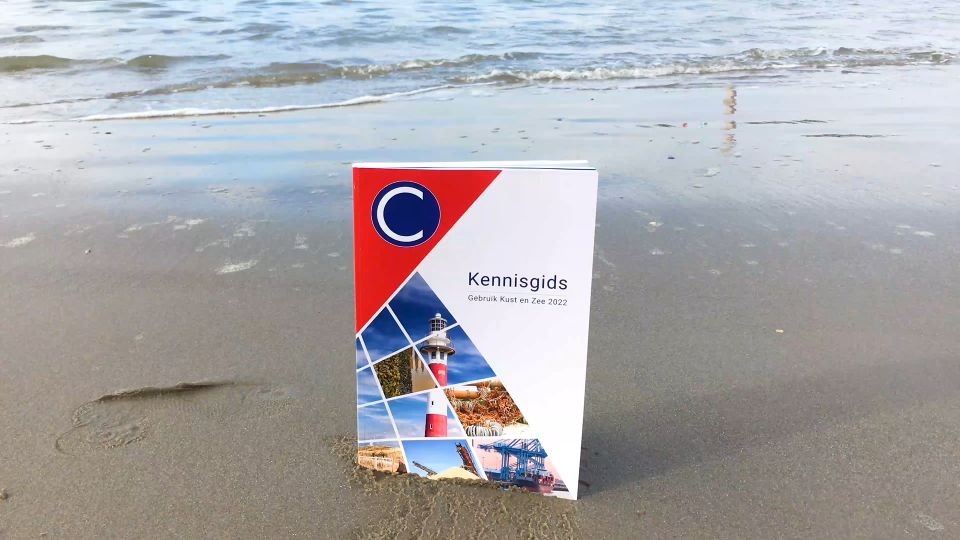The start-up of the Compendium for Coast and Sea was the result of the analysis that the knowledge, facts and figures about the coast and sea were plentiful, yet highly fragmented. In view of the evolution towards a more integrated maritime and coastal zone policy, VLIZ recognised the need for a comprehensive information document to properly underpin this policy.
The initial impetus to this Compendium was given in 2010. That’s when VLIZ and the Flemish Department of Economy, Science and Innovation (EWI) developed a vision of facilitating a systematic inventory of these facts and figures. An expert group including end users from the quadruple helix provided guidance to the initiative to ensure that the Compendium was fit for purpose and generated impact. While the first version of the Compendium for Coast and Sea from 2013 was a single extensive background document, it has since become a family of various products, each with its own objective and target group. For instance, the Knowledge Guide outlines the different user functions in the Belgian part of the North Sea, and an Expert Guide shows the portfolio of marine research groups in Flanders and Belgium. In addition to the Compendium website, a Coastal Portal provides maps and accompanying data regarding the coast and sea. All these products and initiatives are based on an open-access approach. The sources and figures are easily accessible and are periodically updated.

The Compendium for Coast and Sea has become an important lever for the creation of impact in the Belgian marine science and innovation landscape. The systematic, scientifically founded mapping of the Flemish-Belgian marine science landscape is now part of the core business of VLIZ, as stipulated in the covenant with the Flemish government. This information has already proven its value in numerous Belgian and Flemish policy documents and parliamentary questions. Examples include the contributions to the Fisheries Report and the strategic environmental report for the marine spatial plan. The Compendium also played a crucial part as an essential core document for the VLAIO application file in the establishment of the Flemish spearhead cluster ‘Blue Cluster’. In addition, the Compendium can provide assistance in the preparation of detailed analysis reports. In the past, VLIZ drew up a report on the marine research capacity of the Catholic University of Leuven (KU Leuven) and Ghent University (UGent) for both universities. This increased the visibility and influence of marine research clusters within their universities. This is another prime example of the catalyst role which the Compendium has played in marine research for over a decade now.
On an international level, the Compendium has earned its stripes as well. For instance, the Compendium has been recognised as a ‘Good Practice’ by the IOC-UNESCO Global Ocean Science Report (GOSR). It has been recognised by the European Commission as an example of good practice in terms of knowledge valorisation in the field of research and innovation. And it is considered an example on the European Marine Spatial Planning platform. In addition, the Compendium serves as a source of inspiration for various initiatives, including the mapping of the European marine research landscape by the Joint Programming Initiative on Healthy and Productive Seas and Oceans (JPI Oceans) (Ramirez et al., 2015).
Ten years after the launch of the first Compendium, the figures demonstrate a continuous and growing interest in marine research and innovation in Belgium and Flanders. The number of marine research groups and publications is increasing and they have a strong international focus. The most recent inventory (2023) reveals that 1,900 people are employed in marine research in Belgium. These people are active within 135 marine research groups pertaining to no fewer than 23 research disciplines. Annually, they publish nearly 900 marine peer-reviewed and Flemish Academic Bibliographic Database (VABB) publications, 75% of which is freely accessible. In addition, the figures demonstrate that in 82% of these publications, Belgian researchers collaborated with foreign research institutes spread across 163 countries.
The Compendium has provided marine and coastal policymakers with up-to-date scientific knowledge and information for over a decade. Over the course of this period, the Compendium for Coast and Sea has become deeply rooted in the marine research and innovation landscape. Thanks to intensive and transparent cooperation with the stakeholders, the Compendium has succeeded in reinforcing the collaboration between marine experts and increasing the value created by means of blue knowledge within the quadruple helix structure (policy, science, industry and civil society).